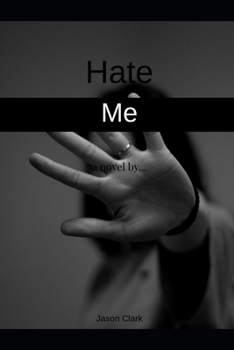Hate Me
"Hate Me" is a raw and visceral exploration of a man haunted by addiction, the ache of lost love, and his difficult path to self-forgiveness. The poignant dedication addresses the ghosts of memory, addiction's whispers, and the remnants of a destructive love, setting the stage for a confession and a desperate attempt to unearth buried truths.
The novel opens with "A Child's Lullaby," a tender flashback to innocent maternal love, tinged with a subtle foreshadowing of future darkness. The idyllic memory, filled with sensory details, contrasts sharply with the discordant reality to come.
The descent begins in "First Taste of Bitter," an unflinching portrayal of the protagonist's initial, self-destructive foray into alcohol. Sensory details shift to the cloying atmosphere of early addiction, where fleeting euphoria quickly yields to regret. The bitter taste becomes a recurring motif of his spiraling life.
A fragile hope emerges in "Meeting Her," where a chance encounter in the rain-soaked city introduces a woman who becomes a beacon. Their connection is immediate, offering a tentative step towards healing.
"Early Days Bliss" captures the intense joy of new love, a vibrant interlude of shared vulnerability. However, an undercurrent of fear hints at the fragility of their happiness. These memories become bittersweet reminders of a fleeting joy.
The narrative darkens with "First Cracks in the Facade," signaling the return of inner turmoil and the strain on the relationship. The elegant setting highlights the growing distance between the couple.
"Hate Me" promises a powerful exploration of addiction, complex love born from pain, and the arduous journey toward healing. Through vivid details and raw emotion, the novel seems set to delve into darkness while offering a glimmer of hope for redemption. The dedication frames a story likely to be both heartbreaking and resonant, a testament to hope's endurance.





